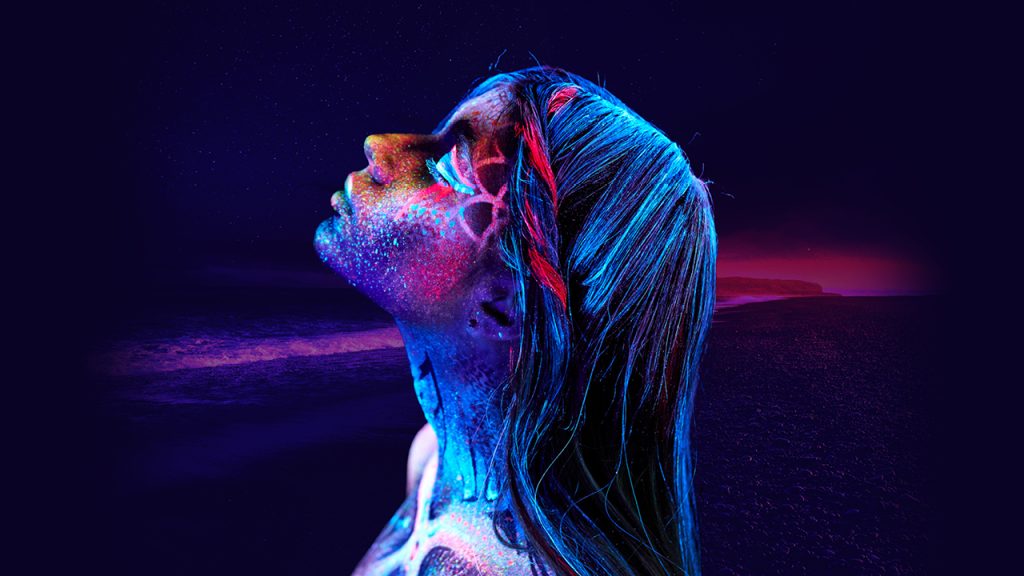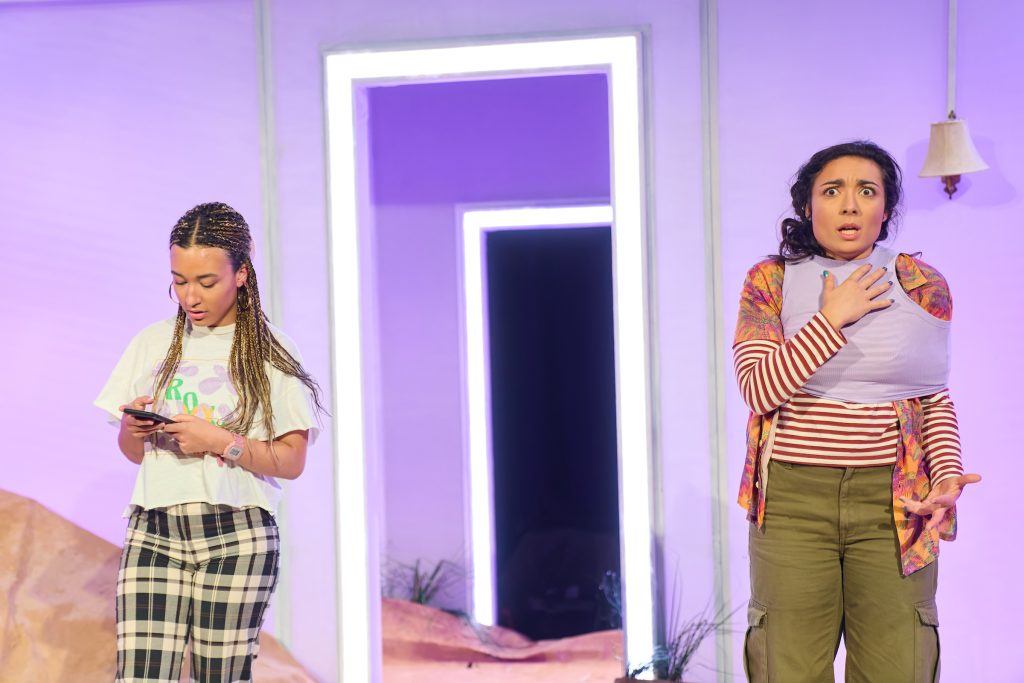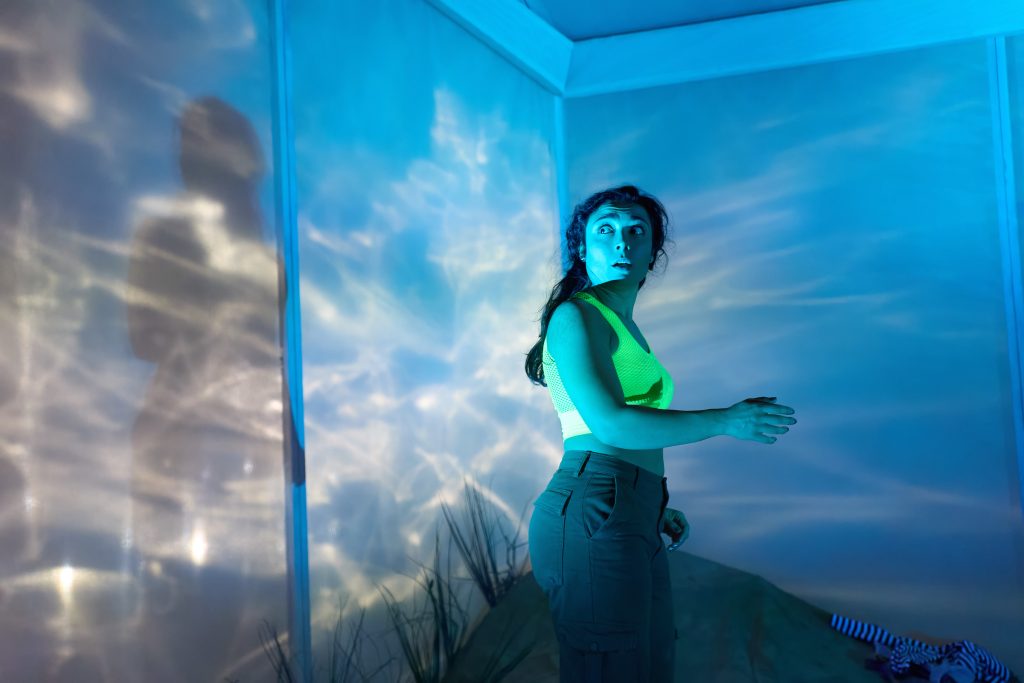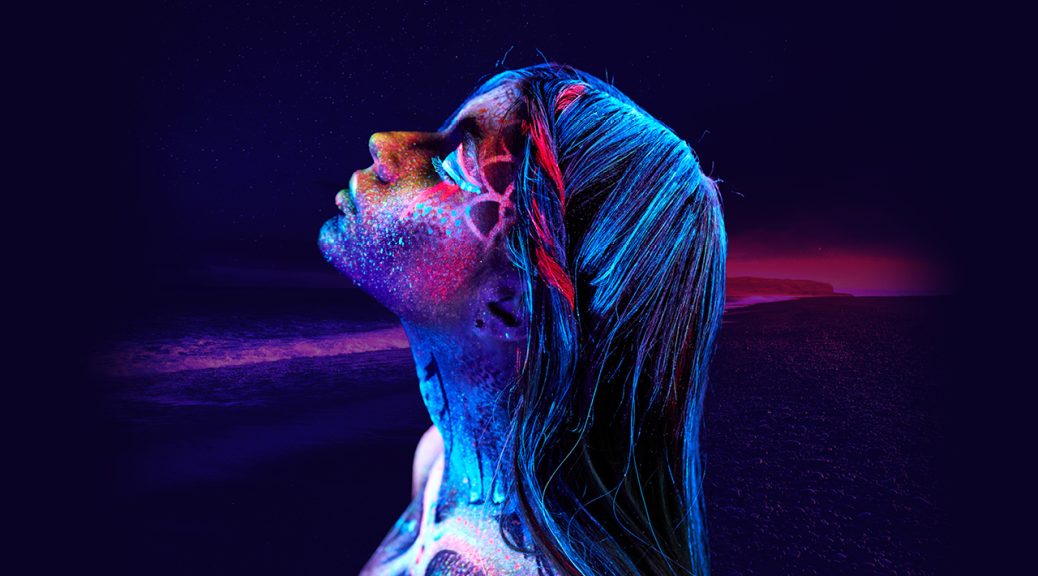
 (4 / 5)
(4 / 5)
What is striking about Welsh play Imrie is its richness. Rich in language. Rich in description. Rich in lighting. Rich in characterisation. This coming-of-age story is like a rainbow bursting into life, pouring its colour out on stage with a vibrancy that reverberates throughout the whole production. Each element resembles a charged particle which, in collision, drives forward a powerful narrative about identity and belonging. It is a tour-de-force in aesthetics, as well as telling of its message.

Elan Davies and Rebecca Wilson take on the roles of Josie and Laura in this two-part drama. They are half-sisters seeking to fit in in their own ways. It begins with Laura dragging Josie along to a party on the beach, she wanting to become one of the ‘in’ crowd while her sibling would rather be elsewhere. So while the former attempts to act ‘normal’, the latter runs off, after being made fun of, and finds herself alone with only the sea for company. And when from the water she hears a voice calling, a journey into an otherworldly tale takes place. This ethereal experience is captured brilliantly by the lighting that shimmers and shapeshifts across the three walls of the enclosed set. But it is also the flexibility and freedom of Davies’ physicality that produces beautifully an event which exists between the real and the imaginary.
There are parallels with Caryl Lewis’ recent novel Drift, particularly in relation to the female protagonist. Along with Disney’s Turning Red and The Little Mermaid, it is fair to say that writer Nia Morais has tapped into something bigger with Imrie. Certainly, that desire to break free from the expectations of family and (patriarchal) society burns strong here. To tie it in with the theme and symbol of water gives it a weight that bears down on the scale of contemporary classic. Its relevance is shored up by its exploration of sexual and racial identity. In particular, the conversation between the two characters at the end is thought-provoking, challenging and inspiring in its interaction with intersectionality. This is a further facet to the richness of Imrie, whose immersive soundtrack wraps the audience in its atmospheric tones which, along with the Welsh language, contributes to a mythic quality. Its basis in Cymraeg also adds a poetic lyricism to the dialogue which, though stereotypical, actually strengthens its value as a cultural expression of (self-)acceptance.

Most definitely driven by Frân Wen’s passion for young people, when coupled with the Sherman’s support for innovative new Welsh writing, Imrie becomes a bold piece of theatre. Its message may be common but at its heart is an imagination that beats with such originality that it feels fresh. Celebratory of life, even as it depicts its struggles, Imrie reveals something of how identity blossoms, arising out from the depths to become all that we are, rich in colour. A play to be enjoyed whatever age you are.

Gareth Williams

